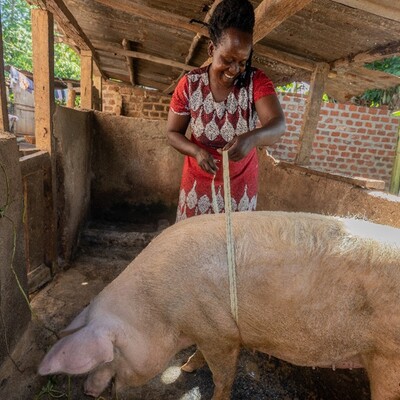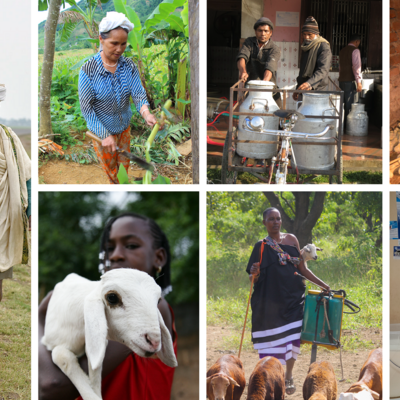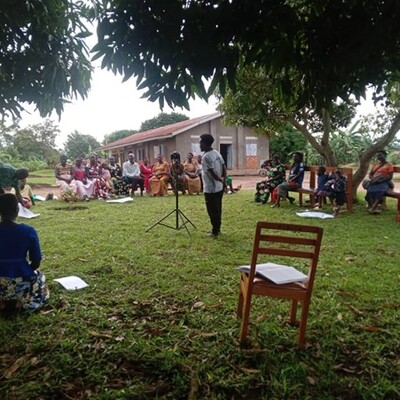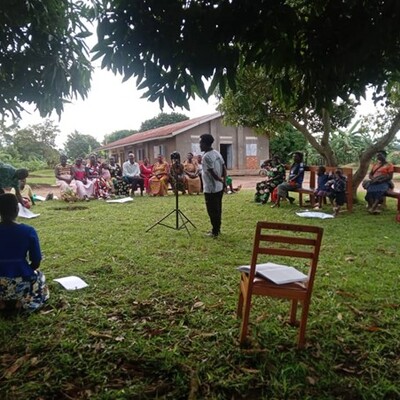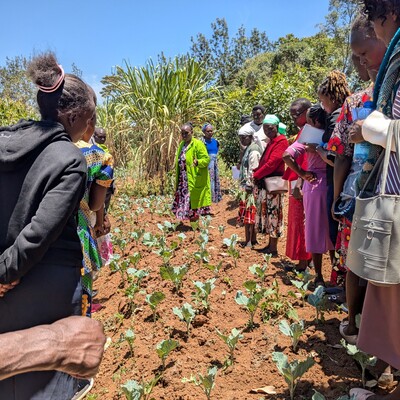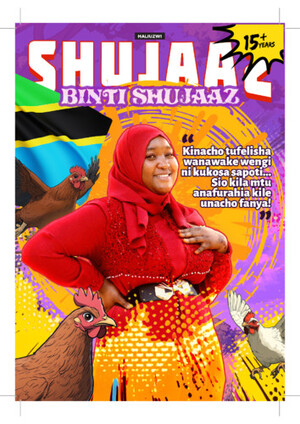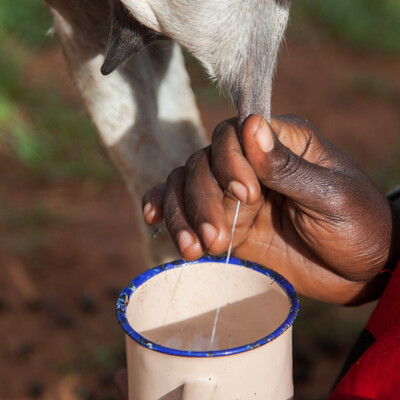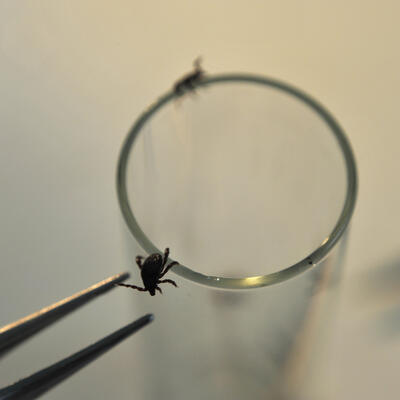
The final view from Iain Wright’s office
Iain Wright recently retired from the International Livestock Research Institute (ILRI) after a respected 17-year tenure and now joins the ranks of ILRI’s esteemed emeritus fellows. Wright joined ILRI in October 2006 as the Regional Representative in Asia. By January 2012, he was the Program Leader of Animal Sciences for Sustainable Productivity and Director General Representative in Ethiopia. From 2014 onwards, he became Deputy Director General of Research and Development for Integrated Sciences.
Wright’s impactful tenure strengthened ILRI’s research on the connections between people, livestock and the environment, and significantly raised the profile of the gender platform. During a fireside chat with colleague Ekta Patel, Wright reflected on his career achievements, challenges and time at ILRI.
Wright recounted his journey through ILRI, a tale that spans three continents. During his early career, Wright worked in his home country of Scotland, then later in Asia. While based in the steppes of central Asia, Iain experienced two career-defining moments that shaped his path.
‘I found myself in central Asia—Kyrgyzstan, Kazakhstan—where I realized my technical skills were useless; the issues were political and social,’ he explained.
The importance of understanding the broader socio-political context in which scientific solutions are applied is critical, since it is the key to successful project research and implementation.
Wright also recalled a moment in Pakistan, working with livestock scientist Alan Duncan, where gender dynamics influenced their approach to agricultural technology. Duncan and Wright spoke to the men of the village about sheep, while a female colleague spoke with the women, who revealed that big sheep, though technically superior, were seen as less desirable due to their higher feed consumption.
‘This made me understand that technology is not gender-neutral,’ Wright reflected, 'I saw an opportunity at ILRI to use science to make a difference and have an impact. ILRI offered a unique platform to combine science with leadership, which was a compelling combination for me.’
Among some of his favourite moments of his tenure at ILRI, Wright looked back fondly on the various initiatives he led and participated in, from convincing the Indian government to start a classical swine fever program, to integrating feed, genetics and health programs.
One of Wright’s proudest moments at ILRI involved a project in Burundi, where he worked to increase milk production from cattle.
‘A cow producing 13 litres of milk allowed a woman to feed her children, generate extra income to send her kids to school, and grow fodder. She became a trainer in her village. She’s one woman in millions that ILRI has impacted,’ Wright shared.
Much of Wright’s work centred on issues of gender, and he played a pivotal role in ILRI’s development over the past decades by bringing gender issues to the forefront of research.
Alongside his many successes, Patel also asked Wright about any potential regrets he had or things he wished he had done differently during his time at ILRI.
‘One of the things I’m disappointed in is that we did not build up our regional programs more. It’s a critical plank of the new strategy,’ he said, adding that ILRI needs to focus more on monitoring and evaluation, since ‘We lack the hard evidence on the impact that ILRI has had.’
Wright then turned to the audience to answer questions about the incoming changes at ILRI, based on the new strategy.
‘Change is critically important. It can offer opportunities you didn't know were there. Moving out of your comfort zone can spark innovation,’ he explained, and added ‘I’ve learned not to be afraid of change, even if I don’t like it.’
In his closing comments, Wright expressed his optimism about the future of ILRI and CGIAR.
‘The future is brighter now than it has been in past years. There are huge opportunities for science,’ he said after expressing gratitude for the opportunity to help shape the direction of ILRI over the past years, as ‘being part of the senior leadership, driving the institute forward, and increasing its size was a challenging yet rewarding experience.’
As the fireside chat drew to a close, Appolinaire Djikeng, ILRI’s director general, commended Wright for his remarkable career.
‘You share your path from when you started your career in southeast Asia, and that path is one you should write a book about. It spans three continents, three realities,’ he said.
Djikeng highlighted Wright’s ability to adapt and lead across diverse contexts, emphasizing the social, political and economic challenges he navigated.
‘You were able to adapt to be a real science leader,’ Djikeng remarked.
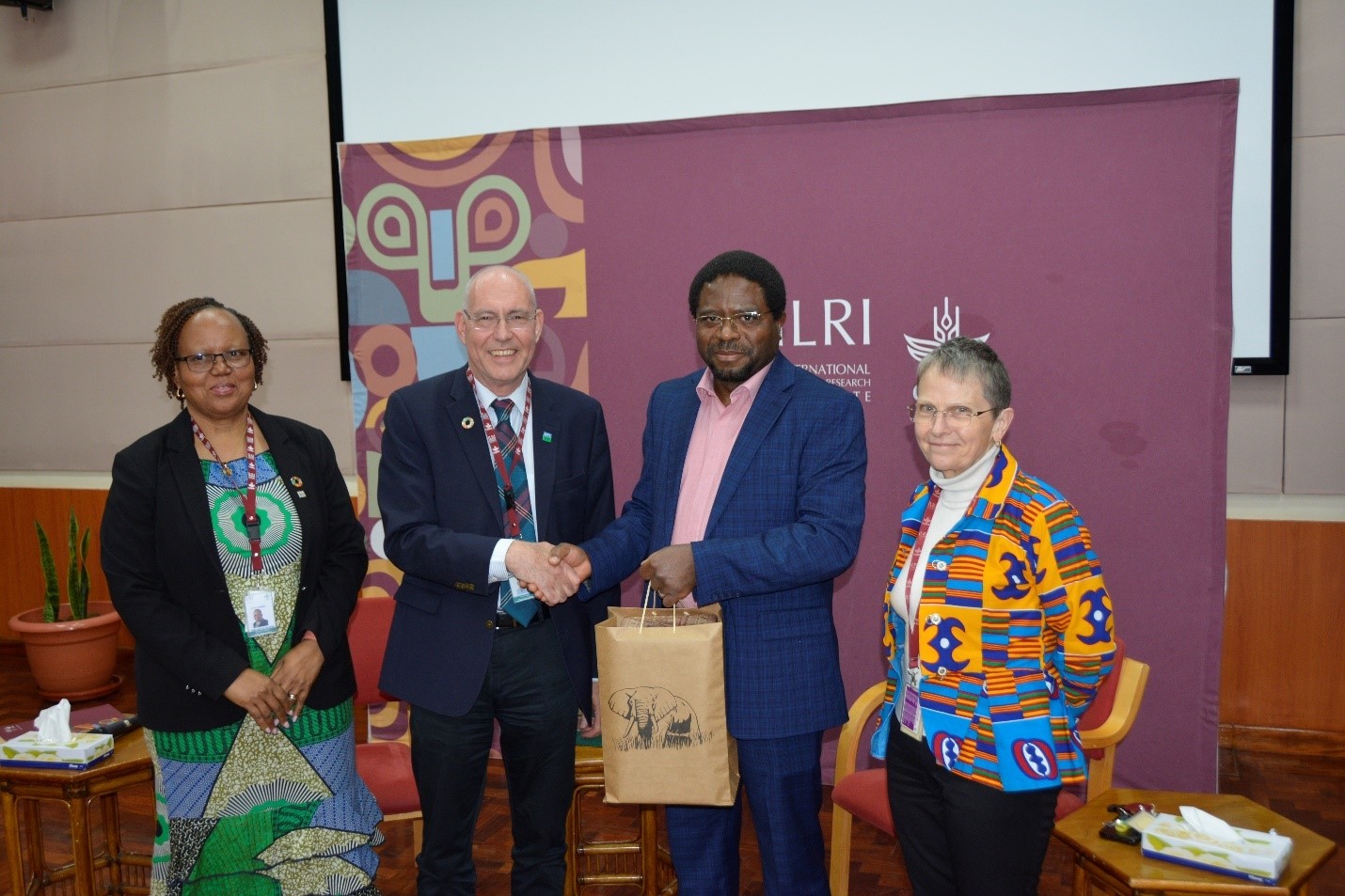
Online, former colleagues including former ILRI Deputy Director of General Biosciences Dieter Schillinger and former ILRI Director General Jimmy Smith echoed these sentiments, expressing hope that Wright’s experience and knowledge would continue to be available to ILRI.
‘Today we are saying farewell, but as you leave, you can be so proud of the contributions you have made to ILRI,’ Smith said.
Wright’s reflections and insights serve as a testament to his impactful career, a lasting legacy at ILRI. In true ILRI tradition, Wright’s legacy was celebrated by a ceremonial tree planting on campus of a Thika Palm.
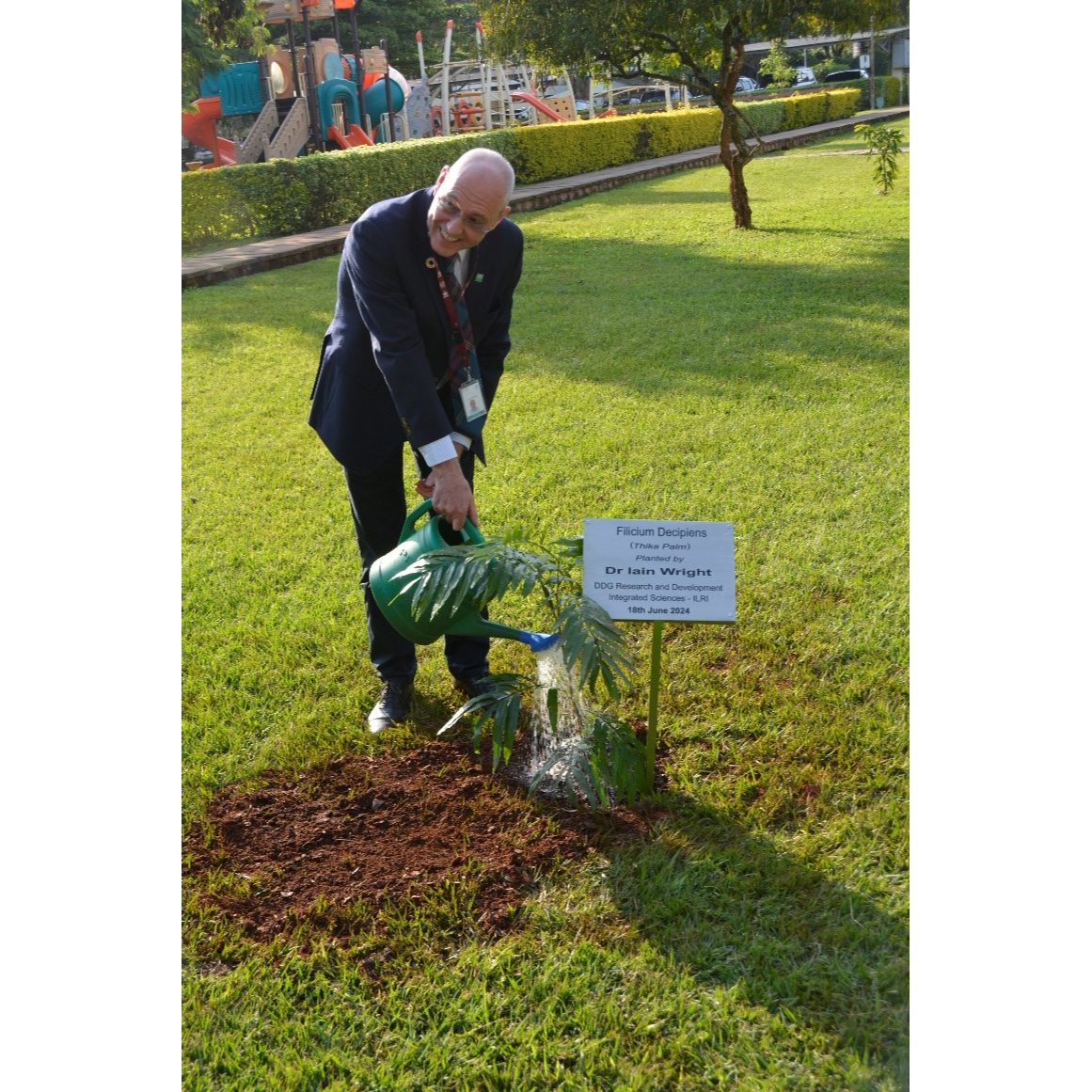
You may also like
Related Publications
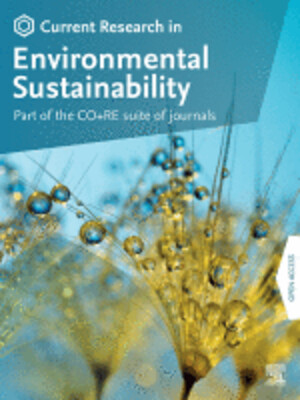
A positive deviance approach to understand gender relations and practices that support transformative adaptation: Insights from Kenya dairy households
- Bullock, Renee
- DuttaGupta, Tanaya
- Miriti, Philip
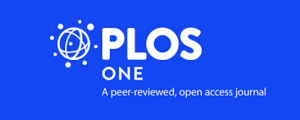
“Without a man’s decision, nothing works”: Building resilience to Rift Valley fever in pastoralist communities in Isiolo Kenya
- Mutambo, Irene N.
- Bett, Bernard K.
- Bukachi, S.A.

Gender and antimicrobial resistance: a conceptual framework for researchers working in livestock systems
- Emdin, F.
- Galiè, Alessandra
- Moodley, Arshnee
- Van Katwyk, S.R.

Gender considerations in innovation platforms in the livestock sector in Mali
- Gning, S.B.
- Dione, Michel M.
- Sene, M.T.D.
- Sow, Ahmadou
- Fall, Abdou






